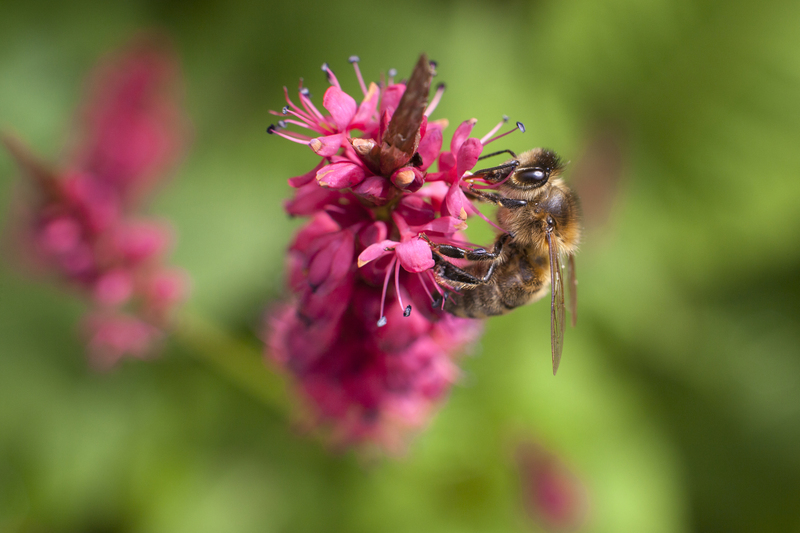9 Gardening Basics Every New Hobbyist Should Embrace
Posted on 19/06/2025
9 Gardening Basics Every New Hobbyist Should Embrace
Gardening is a rewarding and therapeutic activity that allows you to connect with nature, beautify your surroundings, and even provide fresh produce. If you're a new hobbyist, learning the fundamental gardening basics is the first step toward creating a thriving, lush garden you can be proud of. This comprehensive guide will walk you through the most important principles, ensuring your journey into the world of plants starts on solid ground.
1. Understand Your Local Climate and Garden Zone
One of the most crucial beginner gardening basics is understanding the environment in which you are planting. Every location has a unique combination of temperature, rainfall, sunlight, and soil type, all of which affect what can grow successfully.
Why Climate Matters in Gardening
- Hardiness Zone: Refer to your region's plant hardiness zone to identify which plants can withstand your local winters and summers.
- Microclimates: Observe areas in your yard that receive more or less sunlight, are wind-exposed, or are shaded by structures. These microclimates can enable you to grow a wider variety of plants.
- Rainfall Patterns: Understanding your local rainfall will help you plan irrigation needs and select drought-tolerant or moisture-loving plants accordingly.
Tip: Visit local garden centers or extension offices for advice on what grows best in your specific area.

2. Start with the Right Tools
No gardener can go far without a basic set of tools. Having the proper gardening equipment not only makes tasks easier but also helps your garden thrive.
Essential Gardening Tools for Beginners
- Trowel: Perfect for digging small holes and transplanting plants.
- Pruning Shears: Essential for trimming and maintaining healthy growth.
- Gloves: Protects your hands from thorns, splinters, and soil-borne irritants.
- Watering Can or Hose: Ensures your plants receive adequate moisture.
- Rake: Helps clear debris and keep beds tidy.
- Spade or Shovel: Useful for digging and turning soil before planting.
Pro Tip: Investing in sturdy, quality tools saves money in the long run and minimizes frustration.
3. Know Your Soil (and Nourish It!)
The key to successful garden beginner basics lies beneath your feet. Healthy soil is the foundation of a flourishing garden and should never be overlooked by new hobbyists.
Step-by-Step Soil Assessment
- Texture: Squeeze a handful of moist soil. Sandy soils feel gritty, clay feels sticky, and loam (ideal) is smooth and crumbly.
- Drainage: After a heavy rain, check if water pools or drains away quickly. Most garden plants prefer well-draining soil.
- Testing: Use a basic kit to check pH and nutrient levels. Most vegetables prosper in soil with a pH between 6.0 and 7.5.
Soil Improvement Basics:
- Add compost or organic matter regularly to enrich fertility and improve texture.
- Mulch beds to retain moisture and suppress weeds.
- Rotate crops and plant cover crops to protect and build soil health.
4. Choose Suitable Plants for Your Skill Level
New gardeners can be tempted to grow exotic or delicate plants, but early successes come from starting with resilient varieties. Learning which plants work best both for your region and your skill level forms a key gardening basic for beginners.
Best Choices for Beginner Gardeners
- Vegetables: Lettuce, radishes, tomatoes, and beans are generally easy to grow and forgiving.
- Flowers: Marigolds, zinnias, and sunflowers are hardy and add vibrant color.
- Herbs: Basil, mint, chives, and parsley thrive in containers and garden beds alike.
Pro Tip: Always read plant labels or seed packs for information on sunlight requirements and growth habits.
5. Master the Art of Watering
Irrigation is a critical aspect of plant care. Too much or too little water can be harmful, so understanding the watering needs for each plant species is a fundamental gardening skill.
Watering Guidelines Every Hobbyist Should Know
- Consistency: Water deeply but less frequently to encourage deep rooting.
- Timing: Water early in the morning or late evening to reduce evaporation losses.
- Avoid Overwatering: Use your finger to check soil moisture before adding more water.
- Mulch: Organic mulch helps retain soil moisture and keeps roots cool.
Tip: Drip irrigation and soaker hoses are efficient options for larger gardens.
6. Learn to Identify Weeds and Pests
Even the healthiest gardens face threats from unwanted plants and hungry insects. Recognizing and controlling these early is one of the most important gardening basics for new enthusiasts.
Simple Ways to Manage Weeds and Pests
- Mulching: Forms a barrier that prevents weed seeds from germinating.
- Hand-Pulling: Regular maintenance prevents weeds from taking over.
- Natural Solutions: Encourage beneficial insects and birds, use organic sprays, and avoid chemical overuse.
- Monitor: Check plants regularly for damage or signs of disease.
Understanding what is normal in your garden ecosystem makes problem-solving much easier.
7. Fertilize Wisely and Regularly
Nutrient management is a vital part of successful home gardening basics. The trick is to feed plants just enough--not too little, not too much.
Fertilizing Tips for Beginners
- Compost: Homemade compost provides a balanced, slow-release source of nutrients.
- Balanced Fertilizers: Choose a fertilizer that matches your plants' needs (e.g., higher phosphorus for blooms; higher nitrogen for leafy greens).
- Follow Directions: Always follow package recommendations to avoid burning plants.
- Timing: Fertilize during active growth periods, often in spring and summer.
Tip: Over-fertilizing can harm both plants and beneficial soil microorganisms.
8. Patience: The Most Underappreciated Gardening Skill
While not a "tool" or "technique," patience is among the most essential fundamental gardening basics for new hobbyists. Plants grow at their natural pace, and gardens evolve over time.
How Patience Benefits Your Garden
Gardening teaches us to slow down and appreciate the little victories of growth and bloom.
9. Document and Learn from Your Experience
Great gardeners are great observers. Recording your successes, failures, and seasonal changes can accelerate your learning. Embracing a reflective, learning-based approach turns every season into an opportunity for improvement.
Why Garden Journals Are Invaluable
- Track Plant Growth: Note when plants were sown, transplanted, and harvested for future reference.
- Disease and Pest Records: Document what issues arose and how you handled them.
- Weather Patterns: Keeping tabs on rainfall and temperature helps with next year's planning.
- Inspiration: Photos and sketches can inspire next year's garden design.
Pro Tip: Digital or paper, your garden journal is a powerful tool to nurture your growth as a hobbyist.
Bonus: Network with Fellow Gardeners
Gardening communities, whether online or local, are fantastic sources of tips, motivation, and troubleshooting help. Joining a club or engaging in online forums will speed up your learning and make the hobby even more enjoyable.
Key Benefits to Networking
- Sharing Knowledge: Avoid common pitfalls by learning from others' experiences.
- Plant Swaps: Build your plant collection and diversify your garden affordably.
- Encouragement: Seasoned gardeners can offer motivation during setbacks.

Bringing It All Together: Your Journey Starts Now
Embarking on your gardening hobby is an ongoing adventure in learning and creativity. These 9 gardening basics--understanding your climate, using the right tools, nourishing your soil, choosing suitable plants, proper watering, dealing with pests and weeds, smart fertilizing, practicing patience, and learning from your experiences--are core skills every new hobbyist should embrace.
Gardening is more than a pastime; it's a way to cultivate beauty, resilience, and joy--both in the garden and in yourself.
Start small, nurture your curiosity, and soon your garden will blossom in more ways than you imagined. Welcome to the world of gardening!
Frequently Asked Questions
What's the best advice for beginner gardeners?
Start simple, focus on soil health, and don't be afraid to learn from your mistakes! Keep it fun and experiment as you gain experience.
How can I make my garden low-maintenance?
- Grow native or region-adapted plants.
- Use mulch to suppress weeds and preserve moisture.
- Install drip irrigation systems for easy watering.
Do I need a lot of space to start gardening?
No! Container gardening or small raised beds can be just as rewarding for beginners with limited space.
By embracing these gardening basics, every new hobbyist sets the stage for a successful, enjoyable gardening experience!
Latest Posts
Outdoor Enthusiast's Guide: Vital Gardening Equipment
Empower Your Garden with Resilient Solutions Against Weather Extremes
Seasoned Gardener's 3 Winning Tips for Weed Deterrence



